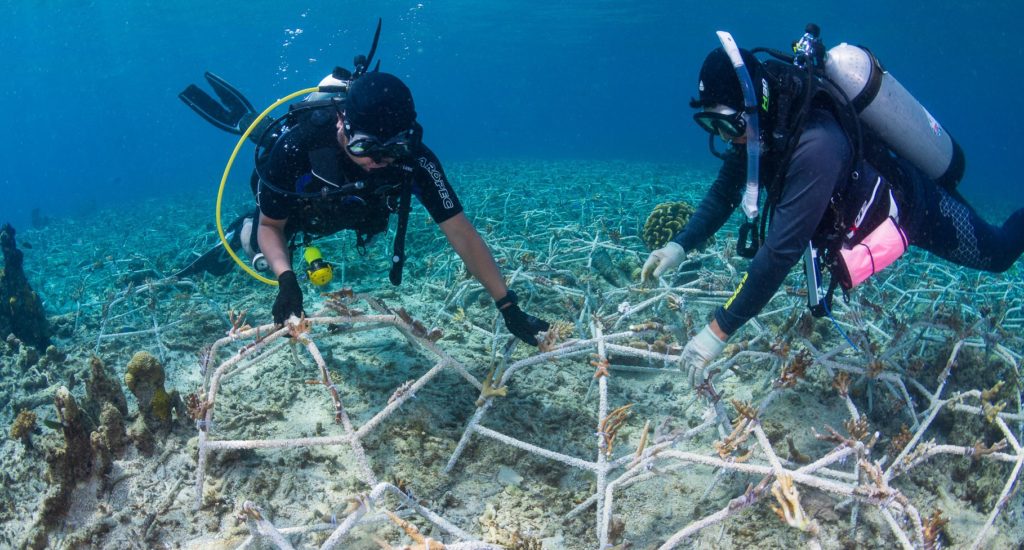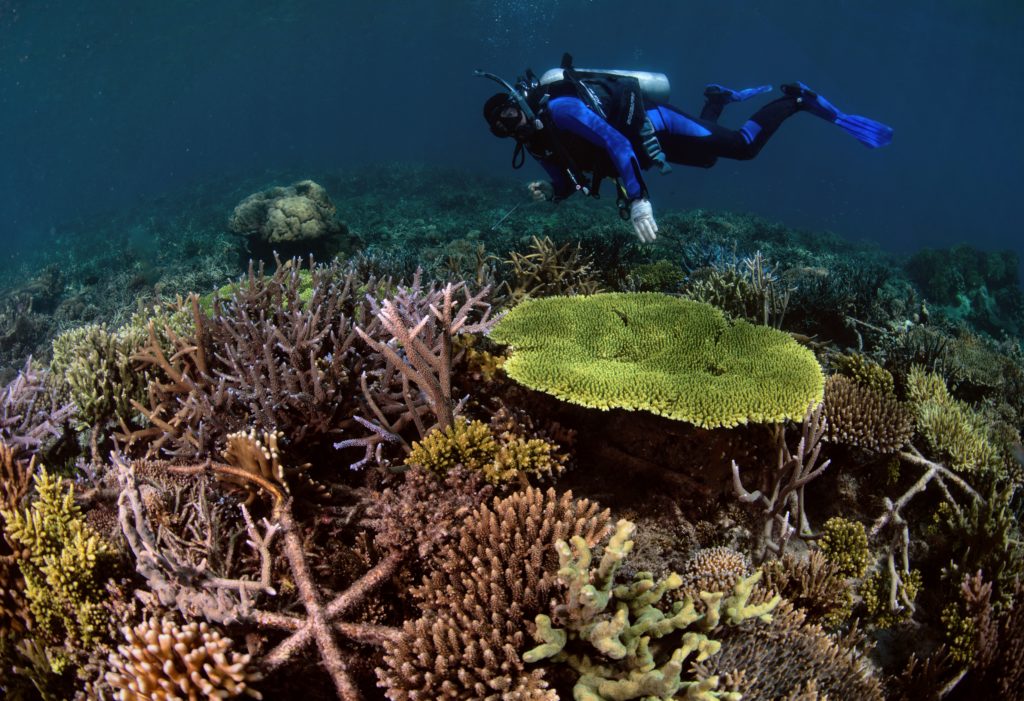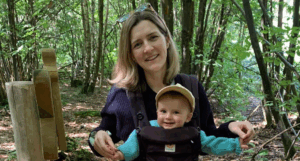Restored coral reefs can grow as fast as healthy reefs

Reef Stars are installed in degraded areas to stabilise loose rubble and kickstart rapid coral growth. Credit Indo-Pacific Films
Planting new coral in degraded reefs can lead to rapid recovery – with restored reefs growing as fast as healthy reefs after just four years, new research shows.
Reefs worldwide are severely threatened by local and global pressures. In Indonesia, where the study was carried out, destructive blast fishing destroyed large reef areas 30-40 years ago – with no signs of recovery until now.
The Mars Coral Reef Restoration Programme attempts to restore degraded reefs by transplanting coral fragments onto a network of interconnected “Reef Stars” (sand-coated steel frames).
Researchers studied these reefs to assess whether coral restoration can bring back the important ecosystem functions of a healthy reef.
The study was carried out by University of Exeter researchers in collaboration with the Research Center for Oceanography, National Research and Innovation Agency (BRIN) in Indonesia, Mars Sustainable Solutions and Lancaster University.
“The speed of recovery we saw is incredible,” said lead author Dr Ines Lange, from the University of Exeter.
“While reef restoration cannot solve the problem that reefs are severely threatened by climate change, it shows that active management actions can help to boost the resilience of specific reefs, and bring back important functions that are critical for marine life and local communities.”

Exeter researchers developed a method to monitor “reef carbonate budgets” – the net production or erosion of reef framework over time.
These carbonate budgets are a key predictor of the reef’s ability to grow, keep up with sea-level rise, protect coastlines from storms and provide habitat for reef animals.
To evaluate if and how fast these reef functions return after coral restoration, carbonate budgets were measured at Mars reef restoration sites that were restored a few months, one year, two years and four years ago, as well as on degraded and healthy control sites.
In the years following coral transplantation, coral cover, coral colony sizes and carbonate production rates tripled, and after four years, restoration sites were indistinguishable from nearby healthy reefs in all investigated parameters.
This means that after only four years, restored reefs are growing at the same speed as healthy reefs, provide similar habitat for marine life, and efficiently protect the adjacent island from wave energy and erosion.
However, as transplanted coral fragments are a mix of different branching coral types, the community composition on restoration sites differs from healthy reefs, which also harbour many boulder-like and encrusting corals.
This may affect habitat provision for larger marine species and resilience to future heatwaves, as branching corals are more sensitive to bleaching.
Dr Tim Lamont, from Lancaster University, who initiated the research collaboration, added: “This is a really encouraging discovery.
“If we can maintain climate conditions that allow for coral survival, it’s possible to restore even very damaged reefs back to healthy, functional systems within relatively short periods of time.”
Co-author Dr Tries Razak, from BRIN Indonesia, said: “Through this research collaboration, I am delighted to observe the highly productive partnership between a distinguished group of international scientists and our team of local scientists and Masters students in Indonesia.
“This collaborative effort not only advances scientific research in Indonesia but also contributes significantly to the capacity building for future generations of Indonesian scientists.”
Summing up her experience in Indonesia, Dr Lange added: “It was a great experience to work so closely with a diverse group of international researchers and the skilled local restoration team.
“We all learned a lot from each other.”
The paper “Coral restoration can drive rapid reef carbonate budget recovery” is published in Current Biology by Ines Lange, Tries Razak, Chris Perry, Permas Maulana, Mochyudho Prasetya, Irwan and Timothy Lamont.



